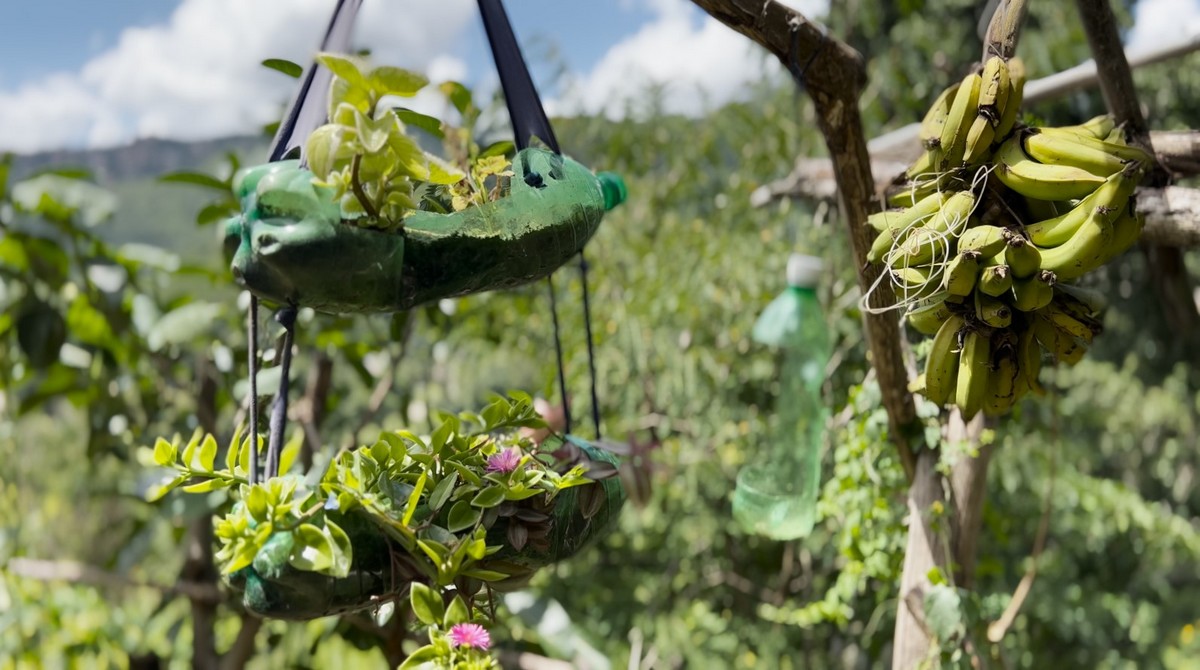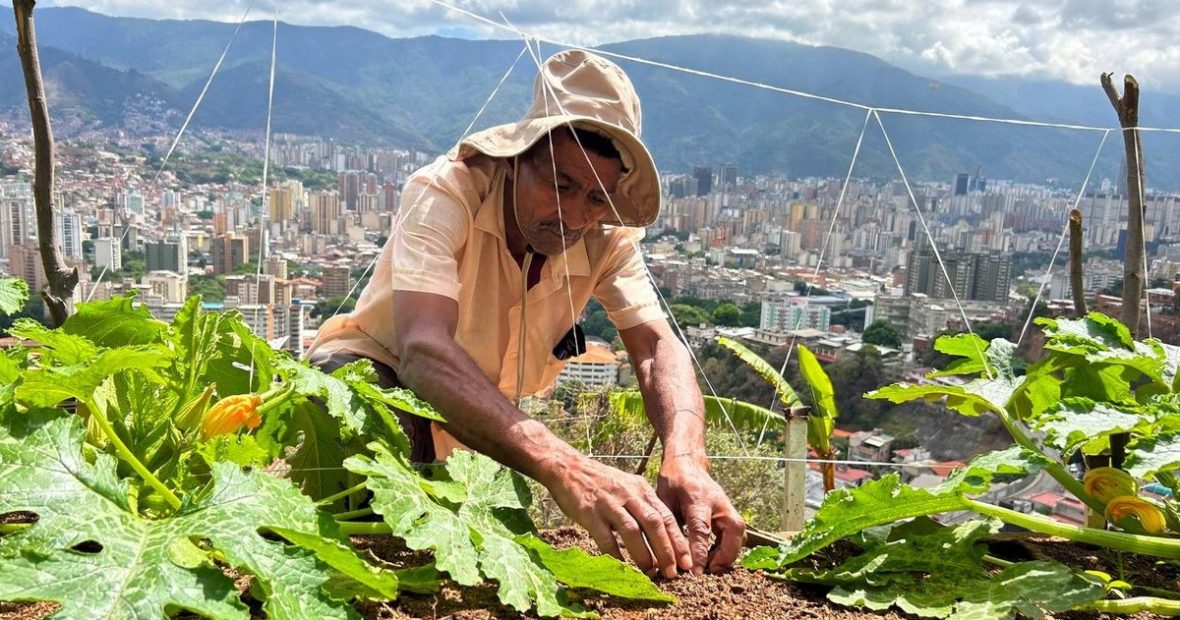Extreme weather events such as flooding are an increasing risk for many vulnerable communities in the Americas.
For those also affected by armed conflict and violence, the consequences are doubly devastating because help invariably never comes. These communities are often left to fend for themselves without the resources to do so.
Earlier this year the ICRC’s Innovation Team and the Americas Region, with support from Red Cross National Societies, launched five initiatives aimed at testing solutions to advance climate adaptation in Colombia, Honduras and Venezuela.
The Americas Climate Challenge follows previous Challenges in Africa, the Near and Middle East and Asia, supporting 28 pilots to date.
Three of the initiatives focus on helping communities to better anticipate and respond to the impact of heavy rain and flooding; while the other two are looking at innovative ways to ensure sustainable food production.
Colombia
- Adapted Hydro-meteorological Stations for Early Warning
This pilot in the municipality of Barbacoas will rehabilitate and reconvert two hydro-meteorological stations on the Telembí river to provide reliable real-time data on water levels and flow.
This will allow local departmental authorities to better respond to possible natural disasters and reduce the consequences on riverside communities. The municipality, with a population of over 42,000 inhabitants, has recorded 30 floods in the past four years.
“Every year, natural disasters caused by floods in the area affect thousands of people. The need for an improved early warning information system and preventive response has been evident for years, both in requests from affected communities as well as local authorities,” says Viviana Jiménez, the ICRC’s economic security (EcoSec) coordinator in Colombia.
“Because of conflict, this area is inaccessible for the state institution in charge of installing these kinds of hydro-meteorological stations. This is why we decided to go ahead.”
The pilot brings ICRC protection, EcoSec and water & habitat (WatHab) teams together with the Institute of Hydrology, Meteorology and Environmental Studies. It will also see the local branch of the Colombian Red Cross train approximately 20 community members on Community First Aid and Community Risk Management Plans with a focus on climate change.
- Assistance to Communities in Environmentally Protected Zones
Landslides are an increasing risk in many rural areas. When they occur in conflict-affected environmental protection zones, communities are often cut off from the outside world and unable to generate income. In addition, any solutions need to be nature-based and sustainable.
The ICRC is working with the Climate Centre and a local partner, Sin Derrumbes, in Cauca, in the south-west of the country, to introduce a reforestation technique that includes crop growing.
“Landslides have a big impact on the ability of rural communities to generate income, because many of them live from agriculture,” explains Paula Cuero, the ICRC’s WatHab coordinator in Colombia.
“Landslides also affect their ability to access water, because rural aqueducts are destroyed or polluted, and they also expose people to risks such as landmines that get displaced. The aim is to use the methodology tested by Sin Derrumbes in other rural areas to protect communities from landslides and enable them to grow crops that will generate income in a sustainable way.”
- Black Soldier Flies to Improve Agricultural Production

Black soldier fly larvae hatchery, Colombia.
Rural communities in conflict-affected areas of Colombia face multiple challenges when it comes to agricultural production.
In recent times, the high price of animal feed and fertilizer linked to the war in Ukraine has compounded the situation, hitting one of the most common productive food and income sources: egg-laying hens.
The ICRC is hoping that Hermetia illucens, otherwise known as black soldier flies (BSF), may offer a cheap and sustainable solution. BSF larvae are not only a cheap source of protein-rich animal feed, but they can also be used to produce organic fertilizers.
“This pilot is being run by a small community, which is affected by conflict and is very vulnerable. The goal has been to make this as simple as possible so that any community with the same characteristics can start breeding these flies whether in Colombia or other parts of the world,” says Viviana Jiménez.
“A key objective is to develop technical and scientific documentation of the whole production cycle and use of BFS, so that this kind of solution, which has multiple benefits for the community and its environment, can be easily replicated.”
Honduras
- Local Solution to Flooding
Chamelecón, a suburb of the city of San Pedro Sula, has suffered for decades from frequent river flooding, exacerbated by climate change.
It is also at the centre of a bitter turf war between two armed groups – Mara Salvatrucha MS-13 and the Pandilla Barrio-18. Because of “invisible borders” between the gangs, hundreds of families are forced to live in areas at high risk of flooding where they lack access to essential services, including health and education.
In cooperation with the Honduran Red Cross, the ICRC aims to improve the early warning system by rehabilitating and reinforcing a hydrological station as well as providing pumping equipment for the community to evacuate water.
“Each time the river floods, it has massive consequences for their lives, destroying any hopes they might have for the future. This initiative is closely linked to our protection work in the community to help them be more resilient to the consequences of armed violence. The ultimate objective is to be able to have a quality dialogue with the gangs so that the effects of violence decrease and the wellbeing of the community improves.”
David Quesne, ICRC operations coordinator for the Americas.
Venezuela
- Terrasse and Vertical Gardens
Families living in Caracas’s barrio “Cota 905” are among the city’s most vulnerable. The area is densely populated, affected by chronic violence, and people living there have restricted access to services to meet basic needs or generate income.
With available space at a premium, the ICRC is looking to promote nutritious and sustainable food production for 160 families through vertical planting and terrace farming.
“Promoting sustainable food production at a low cost and increasing food diversity within the community can significantly contribute to increased food security for households whose lives and livelihoods have been impacted by armed violence,” says Paula Restrepo, EcoSec coordinator in Venezuela.
The proposal promotes two types of gardens: terrace gardens, for families with adequate spaces for planting, and vertical gardens, for those who do not have space but are eager to get involved. In addition, they are taught soil, water and seed conservation techniques.

Hanging gardens: re-using plastic bottles in barrio “Cota 905”.
As part of the initiative, families are also learning to incorporate re-used materials, such as plastic bottles and urban waste, into their vertical gardens. The project brings together ICRC protection, EcoSec and WatHab teams, and volunteers of the Venezuelan Red Cross.
“This multidisciplinary approach is enhancing the communities’ resilience and, in addition to improving their food consumption with environmentally friendly practices, strengthening their coping mechanisms against possible future events,” says Restrepo.
Climate-smart programming
Anastasia Isyuk, the ICRC’s operations manager for climate and environment, believes the various Challenge initiatives reflect meaningful progress in terms of understanding and embracing climate-smart programming.
“What you see with the Americas Climate Challenge, with the proposals for Colombia, Venezuela and Honduras, builds very nicely on the ideas and experimentation done by other regional Challenges,” she says.
“I am particularly interested in seeing the results related to the capacity to predict flooding through hydro-meteorological data because the ability to receive, process and disseminate meteorological data lies at the heart of climate-smart programming.”

